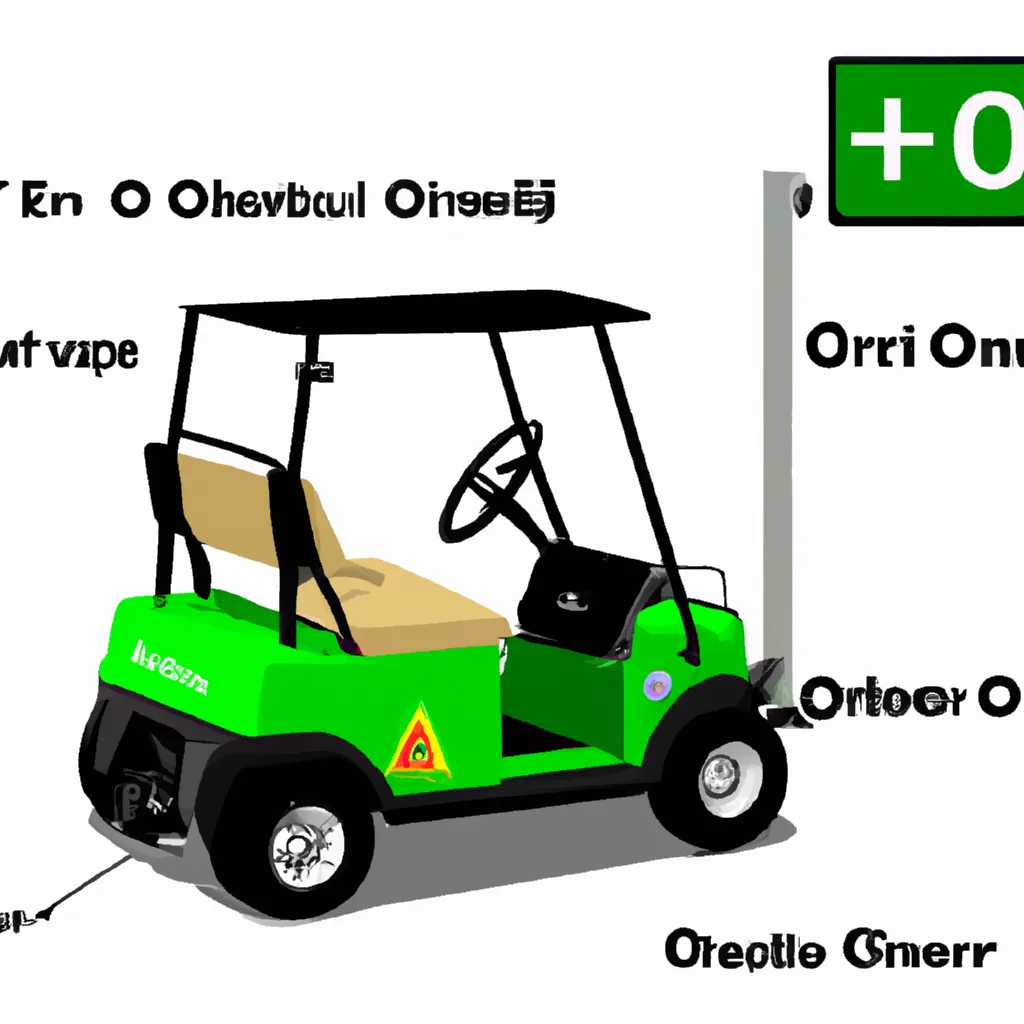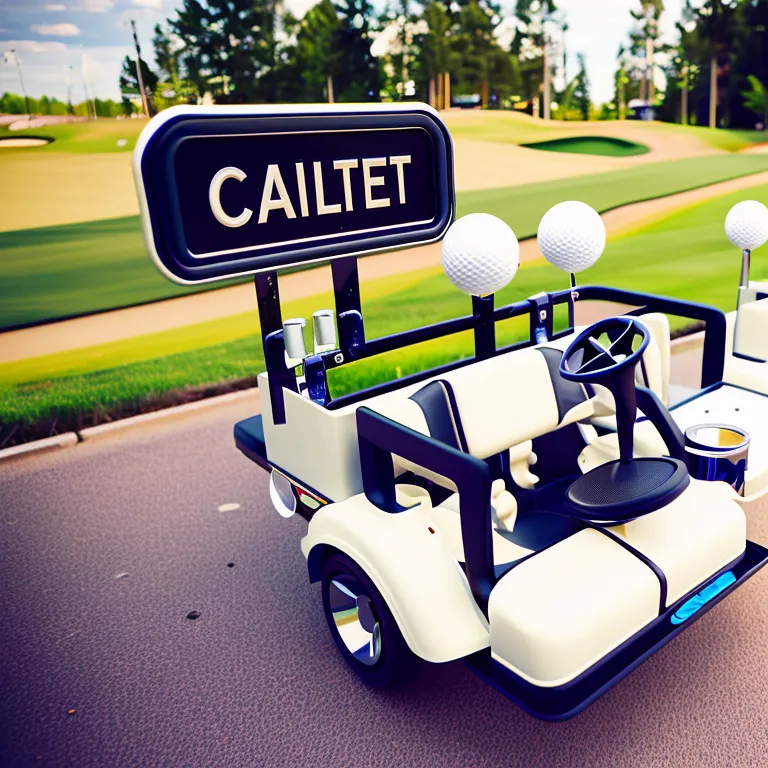5 Fixes For Golf Cart Batteries Not Charging
Golf carts are an efficient and convenient mode of transportation, especially on golf courses and other large properties. However, like any vehicle, golf carts require regular maintenance and upkeep to operate at their best. One common issue that golf cart owners may encounter is batteries that refuse to charge. This can be frustrating, as it can prevent you from using your golf cart when you need it the most.This article will explore five possible reasons why golf cart batteries may not be charging, as well as provide tips and tricks for fixing the issue. From basic battery maintenance to more advanced repair or replacement options, we will cover everything you need to know to get your golf cart batteries back up and running.
Whether you’re a seasoned golf cart owner or just starting out, understanding the causes of charging problems and how to fix them is essential for keeping your vehicle in good condition.
Key Takeaways
– Proper maintenance and a good charger can help avoid battery complications and extend their lifespan.– Depleting the battery too much, lack of distilled water, and old age can cause batteries to fail to charge.
– Battery replacement may be necessary when the battery has aged out or no longer charges.
– Repairing batteries can save money and prevent adding to the number of batteries in landfills, but sometimes replacement is necessary.
Battery Maintenance Tips
One cannot overemphasize the importance of proper battery maintenance in ensuring a long-lasting and efficient golf cart. Neglecting this aspect can lead to a scenario where the battery refuses to take a charge, potentially costing you more in repairs or replacements.To prevent this, it is essential to keep the batteries running smoothly by using a great charger and avoiding complications such as leaving them sitting for too long, depleting them too much, or failing to add distilled water.
Proactive measures such as talking to a battery expert, checking the depth of water inside the cells, and paying attention to the appropriate charger type can help in preventing battery damage and prolonging their lifespan.
Additionally, deep-cycle batteries should not be discharged often to avoid getting damaged, and a new type of charger may add life to an old battery.
By following these simple battery maintenance tips, you can avoid costly repairs and replacements, extend the lives of your batteries, and keep your golf cart running smoothly.
Possible Causes of Charging Problems
Possible causes of charging problems in golf cart batteries include prolonged periods of inactivity, inadequate water levels, and deep discharge cycles. When batteries are left sitting for a long time, they can lose their charge and become damaged, making it difficult or impossible to recharge them.In addition, deep discharge cycles can also cause damage to batteries, as they are not designed to be discharged frequently. To avoid these issues, it is important to maintain proper battery care and use a high-quality charger that is appropriate for your cart model and battery type.
Another common cause of charging problems is a lack of distilled water in the battery. If the water level is too low, the battery may fail to charge properly. It is important to use distilled water to replace old water, as tap water can contain minerals and impurities that can damage the battery.
In addition, old age can also be a factor in charging problems, as batteries may produce less power and discharge faster over time. It may be necessary to replace the battery if it is too old and no longer holds a charge, or if repeated repairs are needed.
Overall, proper maintenance and care can help prevent charging problems and extend the life of your golf cart battery.
Repair or Replacement Options
Repairing or replacing golf cart batteries is an essential step to ensure the smooth functioning and longevity of the battery. If batteries are not charging, it is important to assess the damage and explore options for repair or replacement. Here are a few options to consider:– Attempt DIY repairs: There are various DIY fixes that can be done to repair the battery. This includes adding distilled water to the cells, checking for leaks, and ensuring that the charger is functioning properly. However, if the damage is significant, it is best to seek professional help.
– Professional repair: A battery expert can help assess the damage and make necessary repairs. This may include adding new cells or replacing damaged parts. This option can be cost-effective and can extend the life of the battery.
– Battery replacement: If the battery is beyond repair or has aged out, replacement may be necessary. It is important to choose the right battery for the cart model and to ensure that the charger is compatible with the new battery.
– Dispose responsibly: If the battery cannot be repaired or replaced, it is important to dispose of it responsibly. This can help avoid adding to the number of batteries in landfills and prevent harm to the environment.
By considering these options, golf cart owners can make informed decisions about repairing or replacing their batteries and ensure that their carts remain in good working condition.
Frequently Asked Questions
Can using tap water instead of distilled water cause charging problems with golf cart batteries?
Using tap water instead of distilled water can cause charging problems with golf cart batteries. Tap water contains minerals that can lead to the formation of deposits on the battery plates, reducing their capacity and causing charging difficulties.
Is it possible to add life to an old battery with a new type of charger?
It is possible to add life to an old golf cart battery with a new type of charger. However, it is important to ensure that the charger is appropriate for the cart model and battery type. Consulting a battery expert is recommended for best results.
What should I do if my deep-cycle battery has been discharged too much?
If a deep-cycle battery has been discharged too much, it may refuse to take a charge. In this scenario, a brief charge on a general electrical charger may be necessary. It is important to avoid depleting the battery too much to prevent damage.
Are there any benefits to repairing a battery instead of replacing it?
Repairing a battery can be beneficial as it saves money, prevents adding to landfills, and may extend the life of the battery. However, replacement may be necessary for an old or extensively damaged battery.
What should I do if my battery won’t hold a charge even after attempting to fix it?
A startling statistic reveals that in the US alone, over 3 billion batteries end up in landfills each year. If your battery won’t hold a charge, consider repairing it to prevent adding to this growing problem. However, if all attempts fail, responsibly dispose of it and replace it with a new one.



